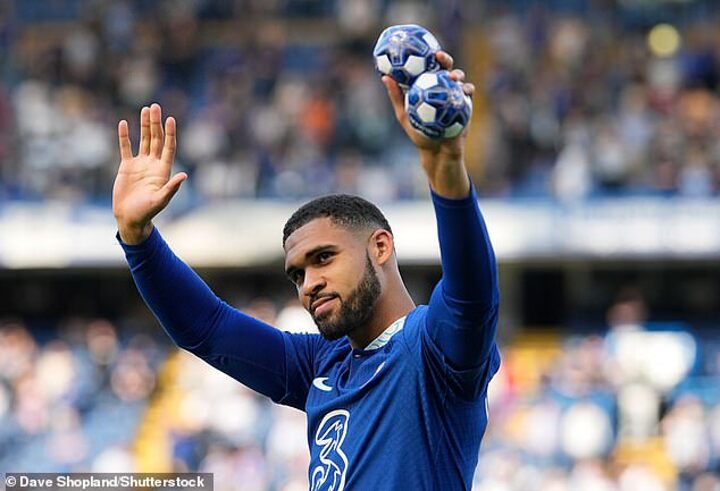Ruben Loftus-Cheek has revealed that he would have left Chelsea while he was still in the academy if he could turn back time.

The 28-year-old, who now plies his trade in the Serie A with AC Milan, spent 19 years with his boyhood club before departing.
After arriving at Cobham as an eight-year-old, Loftus-Cheek went on to make 155 senior appearances after rising through the ranks, notching up 13 goals and 17 assists in all competitions.
However, due to injuries and competition for places, the Englishman never established himself as a regular and he was sent on loans to London rivals Crystal Palace and Fulham.
While once being tipped to become a legend in blue, Loftus-Cheek found it tough to break through a star-studded cast.
'Being at Chelsea coming through, that was the case,' he told The Times. 'It was very difficult to play a lot of football. Even though you're very talented, Chelsea can bring in another player who's in their prime, just ready to go for millions.
'It is difficult as a young player coming through. But I think if the club has a way of liking and pushing home-grown players through, I think it can be easy.'
Loftus-Cheek was handed his Premier League debut by Jose Mourinho at just 19 years old in 2015, coming on in a 1-1 draw against Manchester City.
He spent eight years within the senior set-up and made 33 appearances in all competitions during the 2022-23 season, which turned out to be his final campaign at the club.
On June 30 last year, Loftus-Cheek finally made the decision to leave Stamford Bridge in search of more first-team minutes and made the permanent switch to Milan.
Last season he turned out on 40 occasions for La Rossoneri - the most he has managed in a single season during his career.
Now settled in Italy, the midfielder wishes he had taken the leap to leave Chelsea many years earlier than he did.
'I think if you're a youngster, seven or eight years old, and you've signed with Chelsea, fantastic,' continued Loftus-Cheek. Because it's a great academy. And you'll learn how to play football. And you'll develop your skills there. A great coach is coaching you.
'But it gets to a point, maybe at 15, 16, where you're getting to that stage where it's youth-team football.
'And you might want to start thinking about going and playing somewhere else because it's very difficult now to just go straight through. And the best way to develop is by playing games and playing men's football.
'And it's easier to do that somewhere else at a lower club. And I feel like that's what I missed out on, I think.'
